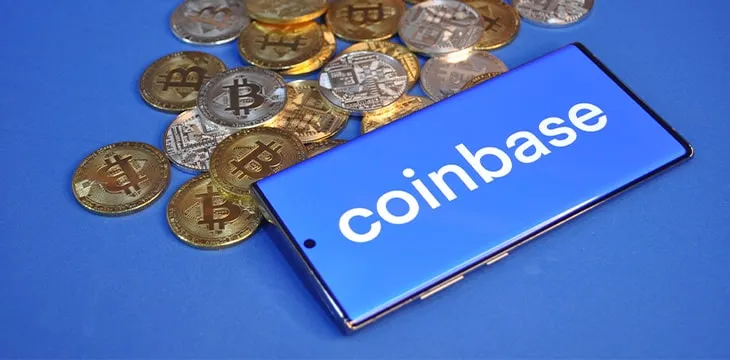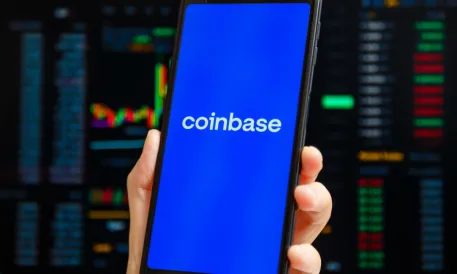Table of Contents
ToggleCoinbase Crypto Recovery Expert
Coinbase Crypto Recovery Expert: Can You Recover Lost Funds?
Introduction
Coinbase Crypto Recovery Expert: Coinbase is one of the largest and most trusted cryptocurrency exchanges in the world. However, users may sometimes lose access to their funds due to scams, hacks, or accidental transactions. Many people seek help from a “Coinbase crypto recovery expert,” but it is essential to understand how legitimate recovery processes work and avoid further scams.
Understanding Crypto Recovery on Coinbase
Unlike traditional banks, cryptocurrency transactions are irreversible. This means that once a transaction is completed on the blockchain, it cannot be reversed by Coinbase or any other platform. However, there are specific cases where fund recovery might be possible:
- Unauthorized account access: If your Coinbase account was hacked, you can report it to Coinbase for investigation.
- Fraudulent transactions: If funds were sent to a scammer, Coinbase may assist in tracking them.
- Account lockout: If you lost access to your account, Coinbase can help restore it through identity verification.
How to Recover Lost Crypto on Coinbase
If you lost funds or access to your account, follow these official steps:
1. Contact Coinbase Support
Coinbase has an official support center where users can report lost funds. Use the following links:
- Coinbase Help Center – Official support resources.
- Report an Issue – File a complaint about unauthorized access or fraudulent transactions.
- Coinbase Support – Get assistance for account-related issues.
2. Report the Issue to Authorities
If you were scammed, report it to regulatory bodies and law enforcement, such as:
- Federal Trade Commission (FTC) – Report scams and fraudulent activity.
- Financial Crimes Enforcement Network (FinCEN) – Submit reports on financial crimes.
- Securities and Exchange Commission (SEC) – Report fraudulent investment schemes.
3. Use Blockchain Analysis Tools
If funds were sent to a scammer, tracking transactions using blockchain explorers may help:
- Blockchain Explorer – Track Bitcoin and other blockchain transactions.
- Etherscan – Analyze Ethereum-based transactions.
- BSCScan – Check Binance Smart Chain transactions.
4. Beware of Fake Recovery Experts
Many scammers claim to be “Coinbase crypto recovery experts” but are fraudsters trying to steal more money. Be cautious of:
- Individuals demanding upfront fees for recovery services.
- Unofficial emails or social media accounts offering assistance.
- Websites impersonating Coinbase support.
🚨 Important: Coinbase does not offer third-party recovery services. Always use official Coinbase channels for support.
How to Protect Your Funds
To prevent future losses, follow these security measures:
- Enable Two-Factor Authentication (2FA) – Adds an extra layer of security to your Coinbase account.
- Use a Hardware Wallet – Store your crypto safely with devices like Ledger or Trezor.
- Verify URLs – Always ensure you’re on the official Coinbase website before logging in.
- Never share your seed phrase or private keys – Scammers often ask for this information to steal funds.
Conclusion
If you’ve lost funds on Coinbase, your best bet is to contact Coinbase support directly and report the issue to authorities. Be cautious of fake recovery experts who promise to retrieve your funds but are actually scammers. Staying vigilant and following best security practices can help you protect your crypto investments from future threats.
🔗 Recommended Resources:

Coinbase Crypto Scam Recovery Services
Coinbase Crypto Scam Recovery Services: A Professional Guide to Fund Retrieval
Introduction
Coinbase Crypto Recovery Expert: As cryptocurrency adoption grows, scams targeting Coinbase users have become increasingly sophisticated. Whether through phishing attacks, fraudulent investment schemes, or unauthorized transactions, victims often face significant financial losses. This guide explores legitimate Coinbase scam recovery services, detailing how they operate, when to seek professional assistance, and preventive measures to avoid future scams.
Common Coinbase Scams
1. Phishing Attacks
Fraudulent emails or websites impersonating Coinbase to steal login credentials and two-factor authentication (2FA) codes.
2. Fake Investment Schemes
Scammers posing as Coinbase representatives offering “guaranteed returns” or fake staking opportunities.
3. Unauthorized Transactions
Hackers gaining access to accounts via SIM-swapping, malware, or social engineering.
4. Impersonation Scams
Fraudsters contacting users via phone, email, or social media, claiming to be Coinbase support.
Can Coinbase Recover Scammed Funds?
Coinbase operates on an immutable blockchain, meaning transactions cannot be reversed once confirmed. However, in some cases, recovery is possible through:
| Scenario | Recovery Potential | Action Required |
|---|---|---|
| Unauthorized Account Access | High (if reported quickly) | Contact Coinbase Support immediately |
| Phishing Scam (Funds Still in Scammer’s Coinbase Account) | Moderate | File a complaint with Coinbase’s fraud team |
| Sent to External Wallet | Very Low | Consult blockchain forensic experts |
| Fake Investment Scam | Low | Legal action may be required |
Legitimate Coinbase Scam Recovery Services
1. Coinbase Support & Dispute Resolution
-
Official Process:
-
Report unauthorized transactions within 24-48 hours for best results.
-
Submit a support ticket with transaction details and evidence.
-
-
Limitations:
-
No recovery guarantee for blockchain transactions.
-
May freeze suspicious accounts if reported promptly.
-
2. Blockchain Forensic Firms
-
Chainalysis & CipherTrace
-
Specialize in tracking stolen funds across exchanges.
-
Often work with law enforcement.
-
Best for large-scale theft cases ($50,000+).
-
3. Legal & Asset Recovery Services
-
Coinbase-Approved Attorneys
-
Handle cases involving fraudulent withdrawals or exchange negligence.
-
May file subpoenas to identify scammers.
-
How to Report a Coinbase Scam
-
Secure Your Account
-
Change passwords and enable 2FA (Authenticator app recommended).
-
Revoke suspicious API keys.
-
-
Contact Coinbase Support
-
Submit a ticket via: support.coinbase.com
-
Provide:
-
Transaction IDs
-
Screenshots of scam communications
-
Police report (if applicable)
-
-
-
File Reports with Authorities
-
U.S. Victims:
-
IC3 (FBI’s Internet Crime Complaint Center)
-
FTC (Federal Trade Commission)
-
-
International Victims:
-
Local cybercrime units
-
Action Fraud (UK)
-
-
Avoiding Fake Recovery Scams
Red Flags of Fraudulent Services
-
“Guaranteed” fund recovery promises
-
Requests for upfront payments
-
Demands for private keys or remote computer access
-
Unsolicited recovery offers (especially via Telegram or WhatsApp)
How to Verify Legitimate Recovery Experts
✅ Check credentials (LinkedIn, legal registrations)
✅ No private key requests
✅ Clear fee structure (pay only after recovery)
✅ Positive, verifiable client testimonials
Preventive Measures for Coinbase Users
-
Enable Advanced Security Features
-
Whitelist withdrawal addresses
-
Use a hardware security key (YubiKey)
-
Disable SMS 2FA (use Authenticator app)
-
-
Verify Communications
-
Coinbase never asks for passwords via email/phone.
-
Official support emails end with
@coinbase.com.
-
-
Educate Yourself on Scam Tactics
-
Research new threats (e.g., “Coinbase Cloud” scams).
-
Double-check URLs before logging in.
-
Conclusion: A Realistic Approach to Recovery
While not all stolen funds can be recovered, taking immediate action improves success rates. Key steps include:
-
Reporting to Coinbase within 24-48 hours.
-
Engaging blockchain forensics for external wallet tracing.
-
Avoiding fake recovery scams that prey on desperate victims.

Coinbase Asset Recovery Services
Coinbase Asset Recovery Services: A Professional Guide to Regaining Lost Funds
Introduction
Coinbase Crypto Recovery Expert: Losing access to cryptocurrency assets on Coinbase—whether due to hacking, account restrictions, or transaction errors—can be a distressing experience. As one of the largest regulated exchanges, Coinbase offers several recovery options for users facing such issues. This guide explores official Coinbase asset recovery services, third-party solutions, and best practices for securing and reclaiming your digital assets.
Common Reasons for Coinbase Asset Loss
Understanding the cause of lost funds is critical before pursuing recovery. The most frequent scenarios include:
-
Account Compromise – Unauthorized access due to phishing or weak security.
-
Transaction Errors – Sending crypto to incorrect or unsupported addresses.
-
Account Restrictions – Frozen assets due to compliance reviews or suspicious activity.
-
Forgotten Credentials – Lost 2FA access or email recovery issues.
-
Scams & Fraud – Social engineering attacks tricking users into sending funds.
Official Coinbase Asset Recovery Options
1. Coinbase Support for Account Access Issues
-
Password Reset – Standard recovery via email/SMS verification.
-
2FA Recovery – If you lose access to Google Authenticator or Authy, Coinbase support can assist after identity verification.
-
Account Restoration – For locked or restricted accounts, submit a support ticket with required KYC documents.
2. Coinbase’s Transaction Reversal Policy
-
Coinbase-to-Coinbase Transactions – If sent to the wrong Coinbase user, contact support immediately.
-
External Wallet Errors – Blockchain transactions are irreversible, but Coinbase may assist if the recipient is a known scam address.
3. Coinbase Vault Recovery
-
Time-Locked Withdrawals – If assets are stored in a Coinbase Vault, unauthorized transfers can be prevented.
-
Multi-Sig Protection – Requires multiple approvals for withdrawals, reducing theft risk.
When to Use Third-Party Recovery Services
If Coinbase cannot resolve your issue, consider these professional alternatives:
1. Blockchain Forensic Firms
-
Chainalysis & CipherTrace – Trace stolen funds across exchanges (typically for law enforcement or large cases).
-
Elliptic – Identifies illicit transaction patterns.
2. Wallet Recovery Specialists
-
Wallet Recovery Services – Decrypts lost passwords for exported Coinbase wallets.
-
KeychainX – Recovers lost seed phrases linked to Coinbase Wallet (self-custody).
3. Legal & Regulatory Assistance
-
CFTC/SEC Complaints – If Coinbase fails to resolve disputes.
-
Asset Recovery Lawyers – For high-value cases involving exchange negligence.
How to Prevent Future Asset Loss on Coinbase
| Best Practice | Action Required |
|---|---|
| Enable Whitelisting | Restrict withdrawals to pre-approved addresses. |
| Use a Hardware Wallet | Store large amounts offline (e.g., Ledger, Trezor). |
| Secure 2FA | Prefer hardware keys (YubiKey) over SMS authentication. |
| Verify Transactions | Double-check addresses before sending. |
| Monitor Account Activity | Set up alerts for logins and withdrawals. |
The Recovery Process: Step by Step
-
Document the Incident – Gather transaction IDs, screenshots, and correspondence.
-
Contact Coinbase Support – Submit a ticket via the Help Center.
-
Escalate if Necessary – If unresolved, file complaints with:
-
Coinbase Complaints Form
-
Consumer Financial Protection Bureau (CFPB)
-
Relevant Financial Ombudsman
-
-
Engage Professionals – For complex cases, hire forensic or legal experts.
Conclusion: Maximizing Recovery Success
While Coinbase offers robust security features, users must take proactive steps to protect their assets. If losses occur:
-
Act quickly – Immediate reporting improves recovery chances.
-
Leverage official channels first – Coinbase resolves most account-related issues.
-
Consider third-party experts – For irreversible transactions or sophisticated scams.
For further assistance, visit Coinbase Support or consult a certified cryptocurrency recovery specialist. By combining platform safeguards with personal security measures, investors can significantly reduce the risk of permanent asset loss.

Coinbase Recovery Experts No Upfront Fee Solutions for Lost or Stolen Crypto
Coinbase Recovery Experts No Upfront Fee Solutions for Lost or Stolen Crypto
Introduction
Coinbase Crypto Recovery Expert: Losing access to your Coinbase account—whether due to hacking, forgotten credentials, or unauthorized transactions—can be a distressing experience. While Coinbase provides official support channels, some cases require specialized recovery expertise. This article explores legitimate Coinbase recovery experts who work with no upfront fees, ensuring you don’t face additional financial risk while attempting to reclaim your assets.
When Do You Need a Coinbase Recovery Expert?
Common Scenarios Requiring Professional Help
-
Hacked Account – Unauthorized withdrawals or locked access.
-
Lost 2FA or Password – Inability to reset credentials.
-
Phishing Scams – Fraudulent links leading to stolen funds.
-
Transaction Errors – Crypto sent to the wrong address.
-
Account Suspension – Frozen assets due to compliance issues.
Can Coinbase Support Help?
Coinbase’s official support can assist with:
-
Account recovery (if identity is verifiable)
-
Disputing unauthorized transactions (if reported quickly)
-
Resetting 2FA or passwords (with proper documentation)
However, if Coinbase cannot resolve your issue, professional recovery services may be necessary.
Legitimate No-Upfront-Fee Recovery Services
1. Blockchain Forensic Firms (For Hacked Funds)
-
Chainalysis & CipherTrace – Work with law enforcement to trace stolen crypto.
-
Requirement: Must file a police report first.
2. Contingency-Based Recovery Experts
-
KeychainX
-
Specializes in wallet and exchange-related recoveries.
-
No fees unless funds are successfully retrieved.
-
Website: keychainx.io
-
-
Wallet Recovery Services
-
Focuses on password and seed phrase recovery.
-
Payment only after successful recovery.
-
Website: walletrecoveryservices.com
-
3. Legal Recovery Channels
-
Coinbase Arbitration – For frozen or wrongfully held funds.
-
IC3 (FBI Cybercrime Division) – For reporting theft.
How to Avoid Fake Recovery Scams
Red Flags of Fraudulent Services
-
“Guaranteed Recovery” Claims – No legitimate service can promise 100% success.
-
Upfront Payment Demands – Ethical firms charge only after results.
-
Unsolicited Offers – Scammers often contact victims via Telegram or email.
-
Requests for Private Keys – Never share sensitive information.
How to Verify Legitimate Experts
-
Check for verifiable case studies and reviews.
-
Ensure they have a professional website (not just social media).
-
Confirm a no-recovery-no-fee policy.
Steps to Take Before Hiring a Recovery Expert
-
Document Everything
-
Save transaction IDs, screenshots, and correspondence with Coinbase.
-
-
Report to Coinbase Support
-
Submit a formal ticket through their official channels.
-
-
File a Police Report
-
Required for blockchain forensic investigations.
-
-
Consult a Reputable Recovery Service
-
Use only verified, no-upfront-fee professionals.
-
Conclusion: Recovering Without Additional Risk
While not all losses can be recovered, no-upfront-fee experts provide the safest way to attempt retrieval. If Coinbase support cannot resolve your issue, consider KeychainX or Wallet Recovery Services before paying any fees.
Act quickly—some recovery options are time-sensitive. Always prioritize security to prevent future incidents.
.

Best Coinbase Recovery Experts
Best Coinbase Recovery Experts: Professional Guide to Regaining Lost Funds
Introduction
Coinbase Crypto Recovery Expert: Losing access to your Coinbase account or cryptocurrency holdings can be a distressing experience. Whether due to hacking, forgotten credentials, or unauthorized transactions, professional recovery experts provide critical solutions for retrieving lost funds. This guide examines the best Coinbase recovery specialists, their methodologies, and how to choose a legitimate service to maximize your chances of asset recovery.
When Do You Need a Coinbase Recovery Expert?
Common Scenarios Requiring Professional Assistance
-
Hacked Coinbase Account – Unauthorized access leading to stolen funds.
-
Locked Account – Suspended or restricted access due to security concerns.
-
Lost Two-Factor Authentication (2FA) – Inability to log in after losing 2FA devices.
-
Incorrect Transactions – Crypto sent to the wrong address or an unsupported network.
-
Phishing Scams – Fraudulent emails or fake websites tricking users into revealing credentials.
Can Coinbase Support Help?
Coinbase’s official support can assist with:
-
Account recovery (if identity is verifiable)
-
Disputing unauthorized transactions (if reported quickly)
-
Investigating suspicious activity
However, if funds have been withdrawn from Coinbase to an external wallet, recovery becomes significantly more complex, requiring blockchain forensic experts.
Top Coinbase Recovery Experts in 2024
1. Blockchain Forensic Firms (For Stolen Funds)
These firms specialize in tracking stolen cryptocurrency across blockchains.
| Service | Specialization | Best For |
|---|---|---|
| Chainalysis | Law enforcement-grade tracing | Large-scale theft cases ($100k+) |
| CipherTrace (Mastercard) | Cross-chain tracking | Institutional and high-value recoveries |
| Elliptic | Exchange liaison services | Funds sent to known scam wallets |
2. Account Recovery Specialists
If your Coinbase account is locked or inaccessible, these services help regain access:
-
Coinbase Support (Official) – First point of contact for account issues.
-
Trust & Safety Team (For High-Value Accounts) – Priority support for verified users.
3. Wallet Recovery Experts (For External Transfers)
If funds were moved out of Coinbase, these firms assist in tracking and recovery:
| Service | Methodology | Success Rate |
|---|---|---|
| Wallet Recovery Services | Password cracking, seed recovery | 30-60% (case-dependent) |
| KeychainX | Blockchain forensics + legal pressure | Higher for recent thefts |
| Asset Reality | Legal asset recovery | Works with law enforcement |
How the Recovery Process Works
Step 1: Initial Assessment
-
Experts evaluate transaction hashes, wallet addresses, and account details.
-
Determine if recovery is feasible (some cases are irreversible).
Step 2: Blockchain Investigation
-
Tracing funds through mixers, exchanges, and private wallets.
-
Identifying endpoints where crypto may be frozen.
Step 3: Legal & Exchange Coordination
-
Contacting exchanges where stolen funds were deposited.
-
Filing police reports and working with regulators (if applicable).
Step 4: Fund Retrieval
-
Negotiating with exchanges to freeze suspicious assets.
-
Returning recovered funds securely.
How to Avoid Fake Recovery Scams
Red Flags of Fraudulent Services
-
“Guaranteed Recovery” Claims – No legitimate service can promise 100% success.
-
Upfront Payment Demands – Reputable firms charge only after recovery.
-
Unsolicited Offers – Scammers often target victims via email or Telegram.
-
Requests for Private Keys – Never share sensitive wallet details.
How to Verify Legitimate Experts
✔ Check Reviews & Case Studies – Look for verifiable success stories.
✔ No Private Key Requests – Recovery should not require full wallet access.
✔ Transparent Pricing – Clear fee structures (often contingency-based).
✔ Professional Website & Legal Registration – Avoid anonymous operators.
Best Practices to Prevent Future Losses
-
Enable Advanced Security on Coinbase
-
Use Google Authenticator or YubiKey for 2FA.
-
Whitelist withdrawal addresses.
-
-
Store Crypto Securely
-
Move large holdings to a hardware wallet (Ledger, Trezor).
-
Never share recovery phrases online.
-
-
Verify Transactions Carefully
-
Double-check addresses before sending.
-
Use test transactions for new recipients.
-
Conclusion: Choosing the Right Recovery Expert
If you’ve lost access to your Coinbase account or funds, acting quickly improves recovery chances. Follow these steps:
-
Contact Coinbase Support – For account-related issues.
-
Consult Blockchain Experts – If funds were sent to external wallets.
-
Avoid Upfront Fee Scams – Only work with verified, transparent services.






